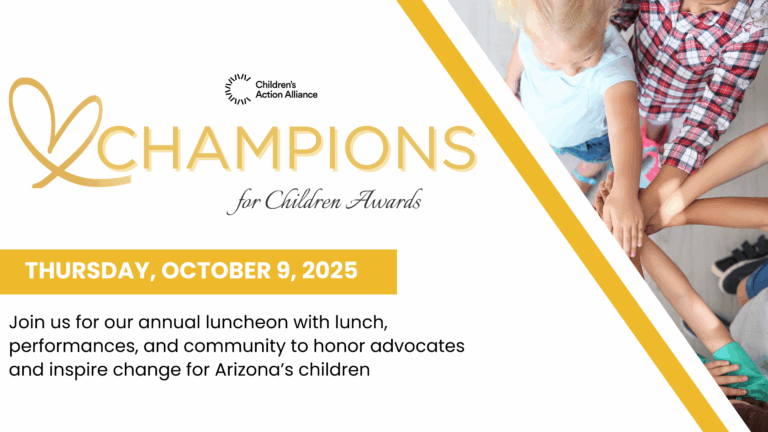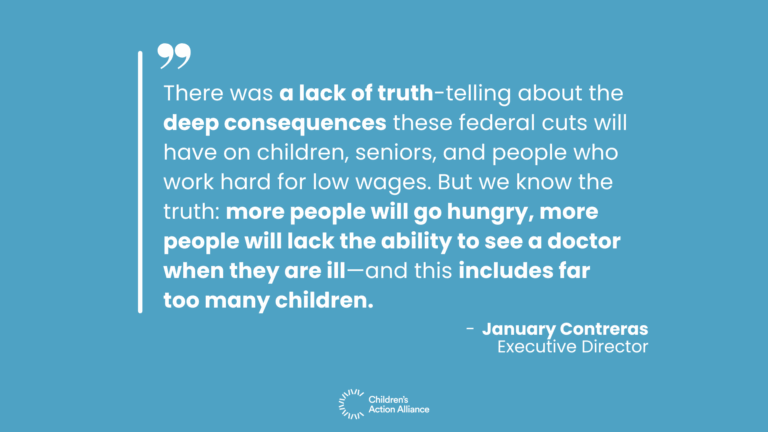
Arizona Families with Children Continue to Struggle During the Pandemic
Since 2019, more Arizona children are living in high poverty areas, and more children in the state are without health insurance, according to the 2021 KIDS COUNT® Data Book, a 50-state report of recent household data developed by the Annie E. Casey Foundation analyzing how families have fared between the Great Recession and the COVID-19 crisis. In Arizona, 15% of children live in high poverty areas compared with the national average of 9%, and in 2019, 9% of Arizona children are without health insurance compared with the national average of 6%.
This year’s Data Book shows the COVID-19 pandemic could erase nearly a decade of progress unless policymakers act boldly to sustain the beginnings of a recovery from the coronavirus crisis. The Data Book also shows simply returning to a pre-pandemic level of support for children and families would shortchange millions of kids and fail to address persistent racial and ethnic disparities.
Sixteen indicators measuring four domains — economic well-being, education, health, and family and community context — are used by the Annie E. Casey Foundation in each year’s Data Book to assess child well-being. The annual KIDS COUNT data and rankings represent the most recent information available but do not capture the impact of the past year:
- ECONOMIC WELL-BEING: In 2019, one in four children in Arizona lived in families where no parent has full-time, year-round employment (27%).
- EDUCATION: In 2019, one in five Arizona high school students did not graduate on time, and more than half (61%) of young children, ages 3 and 4, did not attend school.
- AFFORDABLE HEALTH CARE: In 2019, Arizona ranked 46th in the nation as 161,000 children (9%) did not have health insurance.
- FAMILY AND COMMUNITY CONTEXT: In 2015-19, 239,000 Arizona children (15%) lived in high poverty areas as defined by census tracts with poverty rates equal or greater to 30%.
Investing in children, families, and communities is a priority to ensure an equitable and expansive recovery. Several of the Annie E. Casey Foundation’s suggestions have already been enacted in the American Rescue Plan, and additional recommendations include:
- Congress should make the expansion of the child tax credit permanent. The child tax credit has long had bipartisan support, so lawmakers should find a common cause and ensure the largest one-year drop ever in child poverty is not followed by a surge.
- State and local governments should prioritize the recovery of hard-hit communities of color.
- States should expand income support that helps families care for their children. Permanently extending unemployment insurance eligibility to contract, gig and other workers and expanding state tax credits would benefit parents and children.
- States that have not done so should expand Medicaid under the Affordable Care Act. The American Rescue Plan offers incentives to do so.
- States should strengthen public schools and pathways to post-secondary education and training.



